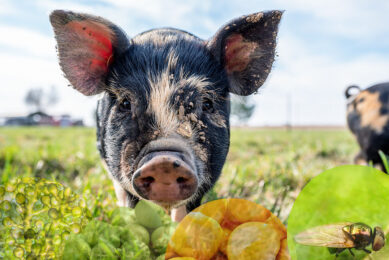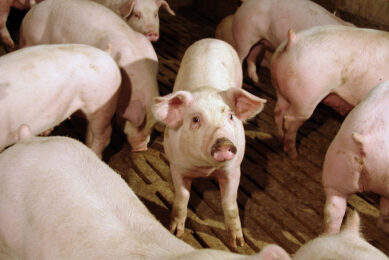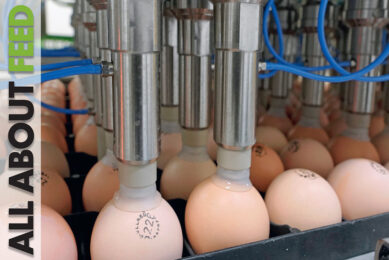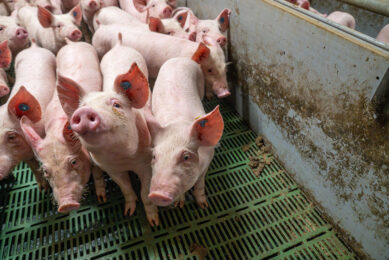Research: Bamboo vinegar as antibiotic alternative

There is a global search for alternatives to antibiotics, but the silver bullet has not been found yet. Chinese scientists tested the effect of bamboo vinegar as an antibiotic alternative on growth performance and faecal bacterial communities of weaned piglets.
The aim of the study was to investigate the effects of bamboo vinegar as an antibiotic alternative in the diet of weaned piglets on their growth performance and faecal bacterial communities.
The compound composition of bamboo vinegar was analyzed by gas chromatography–mass spectrometry (GC–MS).
Trial setup
One hundred and twenty weaned piglets (Duroc × Landrace × Yorkshire), with an average weight of 8.4 kg, were randomly assigned to five treatments, with three pens per treatment.
The diets included bamboo vinegar at levels of 0, 0.2, 0.4 or 0.8%, or antibiotics, and designated as control, BV2, BV4, BV8 and antibiotic, respectively.
Feed intake and weight gain of pigs were recorded at the start and at the end of the feeding trial.
At the end of the experiment, faecal samples of four pigs from each treatment were taken to analyze the faecal bacterial communities.
Thirty four compounds were identified or characterized in acetic ether extract from bamboo vinegar.
The main group from bamboo vinegar was phenolic compounds, ketone and furfural.
Results
Daily weight gain of the pigs in BV4 and antibiotic was significantly higher than pigs in the control group.
No significant difference was observed in daily weight gain among pigs fed diet containing bamboo vinegar and antibiotics.
There was no significant difference in feed intake and feed to gain ratio among different treatment.
The serum glutathione peroxidase activity of pigs in BV2 or BV4 was significantly higher than that of pigs in antibiotics treatment .
The pigs in BV2 had significantly higher serum glutamic–oxaloacetic transaminase activity than those in control.
No significant differences were found in serum superoxide dismutase, hydrogen peroxide, hydrogen peroxidase, oxidation resistance, malondialdehyde and glutamicpyruvic transaminase activities among different treatments.
The richness and Shannon index of diversity were significantly lower for the pigs on the diet containing antibiotics than that of control or diets containing 0.2 or 0.4% bamboo vinegar, and tended to decrease with the increase of bamboo vinegar inclusion in the diets.
Conclusion
The results demonstrate that bamboo vinegar in feed exerts an impact on the faecal bacterial community of piglets.
The reasonable inclusion of bamboo vinegar, like antibiotics in piglet diet benefited for a better performance of piglets in this experiment.
The result suggested that bamboo vinegar could be used as a potential additive in animal production as antibiotic alternative.
Join 26,000+ subscribers
Subscribe to our newsletter to stay updated about all the need-to-know content in the feed sector, three times a week. Beheer
Beheer









 WP Admin
WP Admin  Bewerk bericht
Bewerk bericht